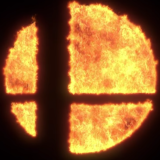So, I finally watched The Vision of Escaflowne... · 3:09am Oct 5th, 2018
At last... this review has been delaying for the last couple of months, but it's finally here. Hope you enjoy.

I understand that, in Japan, this series was the response to Evangelion. After watching it, I can understand a little why. Although it couldn’t match the success and fame of GAINAX's masterpiece, I think it overcome Evangelion in many ways.
The story is not only dark and complex, but it’s also seasoned with alchemy and esotericism. It also achieves something that few series, whether animated or live-action, have reached even to this date: almost all the characters, regardless of its role, main or support, have a solid backstory and their motivations are very clear and strong from the beginning to end. All of them have psychological problems and you end up fond of them, a factor that Evangelion didn’t fully fit... Seriously, raise your hand if you liked Shinji (idiot faggot).
The premise of the story will situate us in contemporary Japan where we will be intrigued by Hitomi Kanzaki, a young student who will begin to experience a series of strange dreams in which she will appear in the middle of a violent battle between a mysterious winged warrior and a fierce dragon. Soon, Van Fanel, who has these visions will be presented physically taking him with him to the remote kingdom of Gaia, a society parallel to the one from Earth and inhabited by fantastic creatures. Hitomi will not only have to figure out how to return to her planet, but she will understand that the strong and enigmatic spiritual connection that will bind her to Van will be key to completing the purpose of the latter as king of the territory of Fanelia. Obviously, this will be a storyline that will develop the clash between the terrestrial world and a fantastic fictional universe establishing itself as one of the main patterns of the adventure genre with a clear "fish out of water" scheme and Joseph Campbell’s hero’s journey. This is better because the series has no filler, always has something interesting to show and is totally focused on the plot.

Of course, being a plot located in a fantastic universe, Gaia will have its own history and mythology. Precisely, Hitomi will land on the planet in full political dispute between the different kingdoms and at the beginning of an armed conflict in a struggle to obtain absolute control of the nation. With an epic story configuration, it will be the empire of Zaibach who will try to take control of Gaia and the possession of Escaflowne, a giant iron warrior (or "guymelet" as they call it in the series). A classic model of "good against evil" that works wonders and, really, hooks. It’s a shame the second half of the story is rushed (and it’s notorious) and gives the impression that it could have been longer and was compressed by budget constraints.
Character development is perfectly measured during the entire story, even though the series will promote the stereotypes and prototypes that we find in an epic adventure of this caliber. In addition, the particular design of the characters with a pointy and prominent nose (extremely unusual within the anime drawing) is one of the most curious and interesting features of the series aesthetically. There are some who don’t get the development they deserved (Merle is the only one who has no background, making her the blandest character in the series by default) and others have a very rushed development near the end (Hitomi is very passive at times and Dilandau disappears in almost all the second half of the story, resulting in a twist that comes out of nowhere), but in general everyone manages to have their moments of brilliance and charm at some point in the plot.

The Vision of Escaflowne will show some very clear Western references, both in the narrative style and in aesthetic section. In addition to the influences of epic literature, much of the artistic design will be a blend between the European mythological past, the epic, the melodrama and even the mecha. An extravagant and somewhat bizarre conceptual design in which the feudal tradition derived from the classic fantasy tale will be combined with the most advanced mechanical futurism as part of the Japanese anime folklore and its relationship with technology.
The music is excellent, each melody is unique and it really feels like you are transported to a medieval world where time doesn’t advance.
But the biggest point in favor of Escaflowne, and in what exceeds over Evangelion, is that this series does have an end (it’s well known that GAINAX had no idea how to finish its work): they save the world, but another one, not this one. And both Van and Allen don’t get Hitomi, she simply returns home to finish school. This is definitely the best example that you can tell a good story in only 26 chapters.



